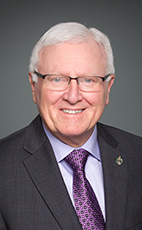Mr. Speaker, I rise today on a point of privilege arising from an incident that occurred here in this chamber on December 3, just last Thursday.
I rise based on citations 93 and 92 of Beauchesne's Parliamentary Rules and Forms which say that any threat or attempt to influence the actions of a member is a breach of privilege, and that that action must relate to the member's parliamentary duties. I assure the Speaker this action did affect my parliamentary duties.
As I sat at my desk preparing questions about the New Brunswick toll highway issue which I was intending to ask in question period just a few moments later, I was confronted by the member of parliament for Kenora—Rainy River. With no introduction, he demanded to know what I “had against Doug Young”. When I asked for clarification, he accused me of calling Doug Young a crook, which I did not do. Then the member warned me to “back off” because “Doug Young has a lot of friends and they have long memories”. I do not know who these friends are. I do not know if somebody else put the member up to this. The member was obviously agitated at the time and therefore I did not argue with the member. I just wanted the confrontation to end.
I proceeded to prepare my questions which actually referred to a letter of Doug Young's. Then the member challenged me to take my comments outside the House, which I assured him I already had. When that did not work, he pointed over to the Liberal benches and said “you better be careful because there are a lot of us over here and we will not forget either”. He left, warning me to remember what he had said.
At the very, very least, this is intimidation designed to prevent me from asking effective questions on matters of concern to my constituents. At worst it is a threat against me as a member of parliament.
There is no place in this House for intimidation or threats. To be intimidated and threatened makes it very difficult to remain focused on the issues. I am sure that was the purpose of the implied threat.
Mr. Speaker, if you find that I have a prima facie case of privilege, I am prepared to move the following motion, “that the matter of possible threats uttered by the member for Kenora—Rainy River should”—

